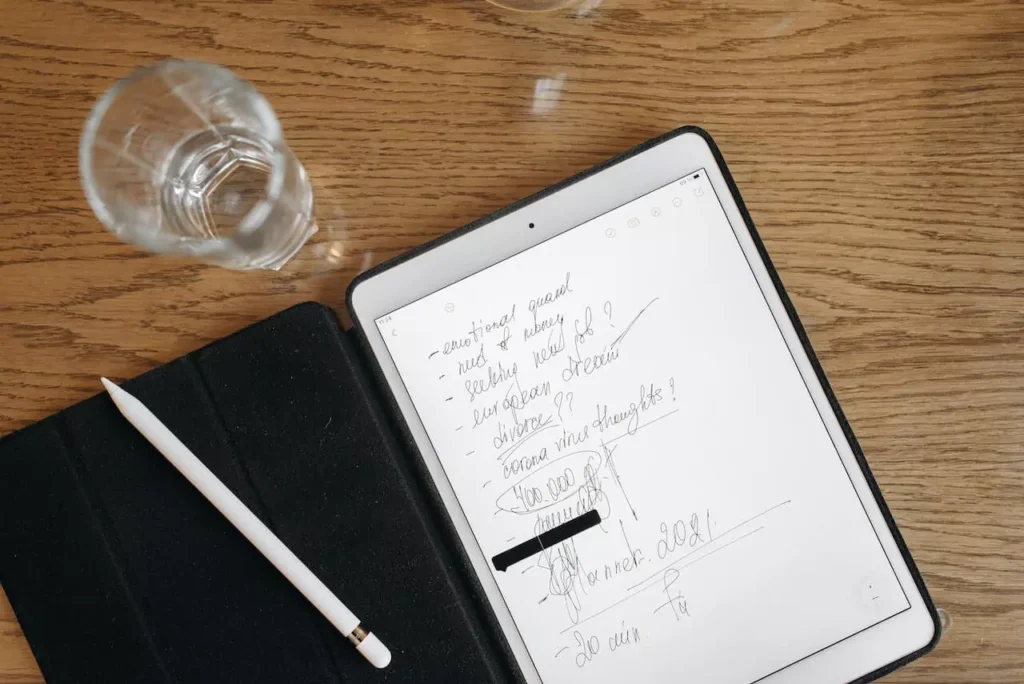Studying effectively requires focus – concentrating on the task without distraction. However, focus can be challenging for many students struggling with constant interruptions from technology, an active mind, or a lack of motivation.
Fortunately, there are techniques you can use to train your brain and improve focus when studying. In this article, I will share 25 uncommon but highly effective tips to help you focus on your work and maximize learning.
Let’s get started!
Table of Contents
1. Use the Pomodoro Technique
Using a timer, the Pomodoro Technique is a time management technique that divides work into intervals, usually 25 minutes long, interspersed by brief breaks. During the “Pomodoro”, you focus solely on the task without distractions for 25 minutes.
Studies show we can only focus intensely for around 30 minutes before our focus wanes. Taking micro-breaks between sprints of deep work allows your brain to recharge so you can refocus for the next interval. Try using the Pomodoro Technique to divide your study sessions into manageable chunks.
2. Gamify Your Studying
Gamification involves applying game mechanics and elements of games to other areas of life to make them more fun and engaging. You can gamify your studying by creating rewards and levelling up to stay motivated.
For example, after each Pomodoro, set a goal like doing 10 pushups—complete 3 sessions and level up by treating yourself to 15 minutes of relaxation. Track your progress on a study-level board. Compete against your past performance. The game-like elements can trick your brain into seeing studying as an achievement rather than a chore.
3. Study in 20-Minute Intervals

Like the Pomodoro technique, breaking your study sessions into 20-minute intervals allows you to maintain intense focus more quickly than longer stretches.
Focus on one subject or task for 20 minutes without checking your phone or getting distracted, then take a 5-minute break to move around, grab a snack or drink, or check social media before diving back in for another 20 minutes. Repeat as needed to complete your planned study time for the day.
4. Use the 52/17 Rule
The 52/17 rule suggests that you can maintain a high concentration level and learn for about 52 minutes before your focus drops significantly; at this point, you need a 17-minute break to recharge mentally.
Use a timer to study intensely for 52 minutes without distractions, then give yourself a full 17-minute break before starting your next 52-minute session. Repeat as needed to optimize deep work while allowing your brain to recharge regularly.
5. Remove Distractions
Distraction is one of the major barriers to concentration. Remove as many potential interruptions as possible when you sit down to study.
Shut down notifications on your devices, close any unnecessary tabs or programs on your computer, put your phone in another room on silent/do not disturb mode, and find a quiet space without foot traffic or background noise. The fewer stimuli competing for your attention, the easier it will be to stay on task.
6. Study Standing Up
Getting out of a comfortable seated position and studying on your feet can increase focus and energy levels. Standing engages your postural muscles, which wakes up your brain and body compared to being sedentary.
Try standing at a tall table, kitchen island, or balance board instead of sitting at your desk for part of your study session. Just take micro-breaks and sit down as needed to avoid fatigue. Standing can improve circulation, which benefits mental clarity.
7. Use Active Recall
Rereading or re-highlighting notes are passive study methods that don’t cement learning and active recall techniques. Active recall involves quizzing yourself on the material without looking at your notes to test how well you understand and remember it.
After studying a section, close your notes and write out everything you can recall from memory. Review your notes to fill in the gaps, then repeat the process. Active recall strengthens memories much better than passive review alone.
8. Study Outdoors
Outside can boost mental performance and lift mood, which aid focus. On nice days, take your laptop, book, or notes to study in a garden, park, or other outdoor space instead of being cooped up indoors.
Fresh air, vitamin D from sunshine, and naturally calming sights like trees and nature scenes make it easier to stay engaged in your work away from indoor distractions. Just be strategic in choosing a spot away from foot traffic and noise.
9. Pair Tasks for Accountability
Finding an accountability study partner is one way to stay focused that draws from social motivation. Agree to a set amount of time where you both work on your respective tasks via video call or in person without distractions or breaks.
Having someone else depending on you to stay focused helps you resist distractions and make the most of the allotted time. Studying with a peer provides built-in accountability that helps both of your brains stay engaged in deep work.
10. Use Clocks or Timers Strategically
A visible clock or timer, especially one that counts up instead of down, can paradoxically help focus. Rather than covertly glancing at the time left, watching it pass engages your prefrontal cortex to stay on task efficiently.
Set a timer at your desk or on your computer to see a real-time record of how long you’ve been studying without distractions. This external display of time passing helps your brain conform to completing its task before that timer elapses.
Check this also: How To Make A Effective Time Table For Study At Home In 2023
11. Do not Study With Background Noise

Tuning out distractions can be challenging in a busy household or apartment. Low background noise can improve focus by blocking out unpredictable environmental noises that grab your attention away from work.
Try studying quietly in the background with calm ambient sounds like nature, classical music, or white noise. Research shows these consistent lower-level inputs allow your brain to tune them out so you can focus on your work without the anxiety of intermittent loud noises.
12. Practice Mindful Meditation
Taking short breaks to meditate allows your overwhelmed or restless mind to rest and regroup so you can return to studying with more presence and focus. Research confirms meditation improves attention, memory, and focus.
During breaks, sit comfortably and focus intently on your breath coming in and out. Notice any racing thoughts without judgment and gently return focus to breathing. Even 5 minutes of meditation per study session can reap big rewards for sustained attention.
13. Study in 20-Minute Peak Periods
Our natural circadian rhythms make certain times of day better than others for focus and retention. According to research, peak times that maximize learning are generally 10 am-12 pm, 3-5 pm, and 7-9 pm.
Try staggering your study sessions within these “golden hours” when your body’s attention and memory are primed for peak performance. For example, study from 10-11:30 am and 3:30-5 pm with breaks in between. Saving deep work for these biological high points enhances focus.
14. Limit Multitasking and Focus
Research definitively shows that humans are terrible at Multitasking. Our brains can’t focus attention on two things simultaneously with efficiency. Constantly flipping between tasks fragments working memory.
When studying, fully commit to one subject or module without distractions before switching gears. For example, finish reading one chapter without entertainment breaks in between. Giving tasks your full mono-focus improves retention compared to fragmented Multitasking.
15. Use Spaced Repetition
Cramming all at once leads to quick forgetfulness. Spaced repetition, or spreading out reviews over time, strengthens long-term memories better. After initial study sessions, schedule repetition of material incrementally further apart, like weekly or every other week.
Flashcards are ideal for this. Review what you learned last study session plus anything you’ve forgotten with increasing time in between. Spaced repetition enhances connections in the brain’s memory networks for durable understanding and recall.
16. Break Down Large Tasks
When faced with a huge assignment or exam, it’s easy to feel paralyzed or distracted trying to tackle it all at once. Break the work into smaller, more manageable chunks that you can focus fully on without getting overwhelmed.
For example, if studying for a midterm over 5 chapters, dedicate one session each to reading Chapter 1 notes, making an outlined study guide for Chapter 2, and then practising Chapter 3 problems. Crossing individual steps off a to-do list keeps you moving forward.
17. Track Your Progress Visually

Studies show humans stay more focused when they can visually track their progress toward a goal. Use productivity tools or apps to create a calendar, checklist, or bullet journal to mark accomplished tasks, upcoming due dates, and your progression.
Seeing physically crossed off or completed items creates dopamine hits that motivate continued focus until you’ve checked everything off. It also holds you accountable externally to stay on track if you want to fill in dates or see tasks checked off.
18. Study in Timed Sprints
Like using Pomodoros or other time-based techniques, trying intermittent short sprints of intense studying helps maximize attention better than sluggish long-haul sessions.
19. Practice mindfulness exercises
Taking short breaks to practice mindfulness can help reset your mind and improve focus. Simple exercises like deep breathing, body scans, or guided meditation for 5 minutes allow your mind to rest before returning to studying.
20. Use active study spaces
Certain environments are naturally more conducive to focus than others. Library study rooms, coffee shops, or campus learning commons provide external accountability to stay on task. The presence of others working quietly helps signal to your brain it’s “study time.”
21. Exercise between sessions.
Going for a 10-15 minute walk, stretch break, or quick workout helps “reset” your brain between study intervals. Physical movement increases oxygen flow, boosting focus and mental clarity upon returning to work.
22. Eat brain-boosting foods

Snacking on foods high in omega-3s, antioxidants, fibre and protein, like nuts, seeds, berries, and yoghurt fuels your brain for concentration. Avoid sugar crashes by spacing carbs with protein and healthy fats.
23. Try binaural beats
Listening to unique audio tracks containing binaural beats, or brainwave entrainment, is shown to help induce relaxed yet focused alpha and theta brainwave states optimal for learning. Headphones amplify the effect.
Conclusion
In summary, focus is essential for effective studying but only sometimes comes naturally. By implementing strategic techniques to minimize distractions, train your concentration skills, and optimize your mental state and environment, you can significantly improve your ability to engage deeply with course material.
While some tips, like studying outside, require more effort initially, with practice, they can become habits that boost focus and retention. Feel free to experiment with different techniques to see what works best for your learning needs and lifestyle. The key is consistency – choose a few high-impact strategies and stick with them regularly to condition your brain for more focused studying over time.
Mastering focus when needed allows you to get the most out of every study session. With diligent application of these uncommon yet highly effective methods, students can train their minds for sustained attention and optimize learning outcomes. Keep going even if building concentration takes gradual progress – every small step helps strengthen neural networks for studying success.
